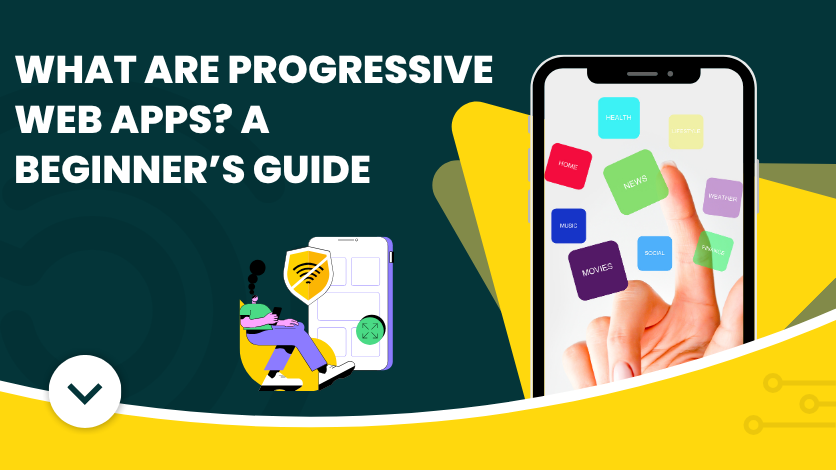Launching a mobile app is a crucial milestone in any business’s digital journey, yet it’s often fraught with challenges. A successful launch demands seamless coordination across design, development, marketing, and user experience, which is why working with a skilled mobile app development company can be a game-changer. In this blog, we will explore the common mobile app development launching challenges and discuss effective strategies to overcome them, ensuring your app enters the market successfully.
Key Mobile App Development Launching Challenges and How to Tackle Them
- Defining Clear Objectives and Target Audience
One of the first mobile app development launching challenges is clarifying the app's purpose and target audience. Without a clear direction, the app may lack appeal or fail to solve the users’ pain points.
Solution: Define specific goals for the app and ensure they align with the target users’ needs. Conduct thorough market research to understand your audience’s preferences, demographics, and behavior. This information will guide the app’s features and interface, making it more relevant to its intended users. - Balancing Feature Completeness and Timeline
Launching an app with too many features can delay its release, but releasing it with too few can limit its appeal. Striking the right balance between feature completeness and a realistic timeline is one of the critical mobile app development launching challenges.
Solution: Prioritize features that directly impact user experience and business goals. Consider using a minimum viable product (MVP) approach, where essential features are released first, allowing users to experience the app while additional features are added gradually. - Ensuring Cross-Platform Compatibility
Today’s users access apps across different devices and operating systems, including iOS and Android. Ensuring the app performs optimally on all platforms is essential but challenging.
Solution: Conduct testing on various devices and platforms to identify compatibility issues early. Developing a responsive design that adjusts seamlessly across screen sizes and orientations will help provide a consistent experience for all users. - Performance Optimization for User Retention
An app’s performance directly affects user retention. Slow loading times, crashes, and high battery usage can lead to uninstalls and negative reviews, making performance optimization a critical challenge.
Solution: Focus on optimizing load times, memory usage, and power consumption. Regularly test the app’s performance under different conditions and optimize code to reduce lag. Tools like Google Firebase Performance Monitoring can provide insights into potential performance bottlenecks. - Navigating the App Store Approval Process"
The app store approval process can be unpredictable, with both Apple’s App Store and Google Play having strict guidelines. Delays or rejections can derail a carefully planned launch timeline.
Solution: Familiarize yourself with each platform’s guidelines and conduct thorough checks before submission. Avoid last-minute changes, and consider submitting your app early to account for possible delays. - Developing an Effective Pre-Launch Marketing Strategy
Building awareness before launch is vital for a successful release. However, many companies overlook marketing until the app is completed, missing out on the opportunity to generate early interest.
Solution: Create a marketing plan that begins well before the app launch. Use social media, email campaigns, blogs, and collaborations with influencers to build excitement. Setting up a pre-launch page or allowing users to pre-register on app stores can help gather early adopters. - Addressing Data Privacy and Security Concerns
User trust is critical, especially when an app handles sensitive data. Failure to secure data can lead to breaches and damage the brand’s reputation.
Solution: Implement data encryption, secure APIs, and authentication protocols to protect user data. Adhering to privacy regulations, such as GDPR, will help maintain compliance and build trust with your users. - Achieving a High-Quality User Experience (UX)
Delivering a superior user experience is essential to the app’s success. Poor design, confusing navigation, and cluttered layouts can result in a high churn rate.
Solution: Conduct user testing and gather feedback on the app’s design and functionality. Simplify navigation, streamline layouts, and ensure that all interactions are intuitive. Working with experienced designers can help create a user-friendly interface that delights users. - Monitoring and Responding to User Feedback Post-Launch
Launching the app is just the beginning. Gathering and acting on user feedback is crucial to improving the app over time, but this requires consistent monitoring and responsiveness.
Solution: Establish a feedback mechanism within the app or through support channels. Regularly review app store reviews and conduct surveys to gather user insights. Use this information to guide updates and demonstrate to users that their feedback is valued. - Budgeting and Managing Development Costs
Managing costs effectively while maintaining quality is a significant challenge. Overspending on development can limit resources for marketing, post-launch updates, or future feature rollouts.
Solution: Create a budget that accounts for all phases of app development, including post-launch support. Break down costs into different stages and monitor expenses closely to avoid budget overruns. Consider outsourcing to an experienced mobile app development company that can deliver quality within budget constraints.
Additional Tips for Overcoming Mobile App Development Launching Challenges
Setting a Realistic Launch Timeline
Many projects suffer from “feature creep” or unrealistic deadlines, resulting in rushed launches or missed targets. Setting a realistic timeline ensures that the development and testing phases are thorough.
Solution: Break down the project into milestones and assign timelines for each phase. Regularly assess progress to avoid last-minute surprises, and be prepared to adjust timelines based on feedback and testing results.
Preparing a Strong Post-Launch Plan
A comprehensive post-launch plan can make a big difference in how quickly the app gains traction and retains users. Too often, apps lose momentum after launch due to lack of continuous improvements or marketing efforts.
Solution: Plan for regular updates that address user feedback, fix bugs, and introduce new features. Stay connected with users through push notifications, email updates, or social media, keeping them engaged and aware of improvements.
Building a Reliable Support System
Customer support is essential for resolving user issues and building a loyal user base. A lack of timely support can negatively impact user satisfaction and retention.
Solution: Set up a dedicated support team to respond to user queries, feedback, and technical issues. An in-app chat support option or a dedicated help center can be beneficial for users and can provide valuable insights for further improvements.
Conclusion: Overcome Mobile App Development Launching Challenges with Expert Support
Successfully navigating mobile app development launching challenges requires planning, resources, and attention to detail. From preparing a strong pre-launch marketing strategy to ensuring cross-platform compatibility, each challenge presents an opportunity to refine and perfect your app. With careful planning and thorough testing, businesses can launch apps that not only meet user expectations but also stand out in the competitive app landscape.
At Appdid Infotech, a leading mobile app development company, we understand the importance of tackling mobile app challenges effectively. Our skilled mobile developers work closely with clients to deliver high-quality, thoroughly tested apps that prioritize user experience and smooth performance. Specializing in iOS, Android, and cross-platform development, our team ensures that each app is user-friendly, secure, and built to thrive in the competitive market. Whether you need enhancements in UX, robust data security, or seamless cross-device functionality, we’re here to support you at every stage of the mobile app development journey.










